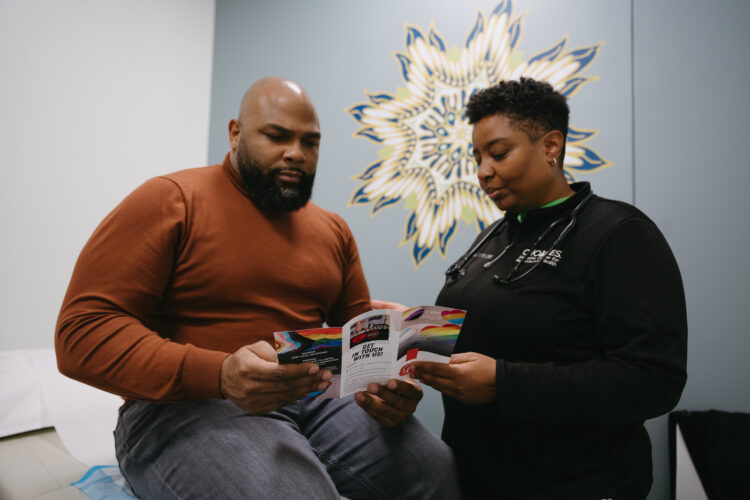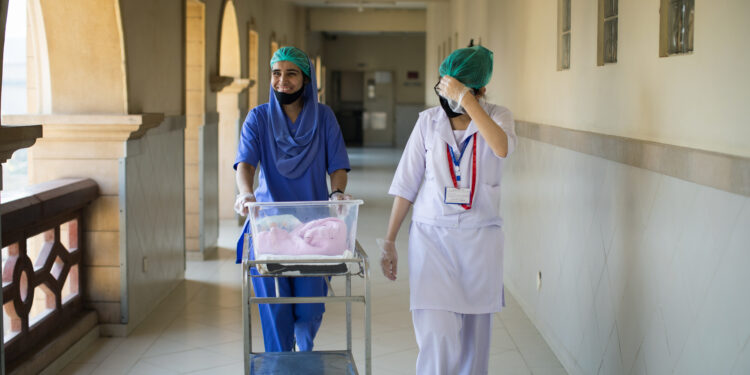Human Rights of LGBTI People

Background
The United Nations (UN) Universal Declaration of Human Rights (1) proclaims that “the recognition of the inherent dignity and of the equal and inalienable rights of all members of the human family is the foundation of freedom, justice and peace in the world”. The International Confederation of Midwives (ICM) states the importance of midwives recognizing, advocating for, and respecting the human rights of all people in its International Code of Ethics for Midwives (2). In 2015 the World Health Organization (WHO), along with UNFPA and 10 other UN entities have stated that they “remain seriously concerned that around the world, millions of LGBTI individuals, those perceived as LGBTI and their families face widespread human rights violations. This is cause for alarm – and action.” (3)
Historically, LGBTI people have been marginalized within pregnancy and birth care by care providers, associations and governments assuming that all pregnant people are in heterosexual relationships and that they identify as women. Discrimination in the provision of services can cause LGBTI people to delay or avoid necessary health care services while pregnant or after birth for their newborns, often putting their overall health at risk (4). Health equity depends upon care providers being informed about the needs of LGBTI people, and possessing the skills, e.g. language used, to provide an environment where all individuals are welcomed and treated with dignity and respect.
Position
ICM supports the right of all people to receive humanised and inclusive midwifery care regardless of their sexual orientation, gender identity, or gender expression.
ICM believes that it is critical for midwives to honour and respect all people’s right to selfdetermination and their right to receive health care that is free from discrimination, homophobia, transphobia and prejudice.
ICM recognises the right of all people to pursue midwifery designation and to be supported in their practice and profession regardless of their sexual orientation, gender identity or gender expression. The practice of midwifery is strengthened and enriched by having a diversity of practitioners that reflect the diversity of families for whom we provide care.
Recommendations
Member associations are encouraged to:
- Welcome all those who need midwifery services and provide them with compassionate, culturally safe care regardless of gender identity, gender expression, or sexual orientation.
- Support LGBTI midwives in their practice and their profession within the confines of the law, and likewise.
- Advocate for the inclusion of the principles of ethics and human rights within the midwifery curriculum in their country.
Related ICM Documents
Other Relevant Documents
- UN. 1948. United Nations Declaration of Human Rights
- UN Human Rights Office of the High Commissioner. 2015. Ending Violence and Discrimination Against Lesbian, Gay, Bisexual, Transgender and Intersex People Canadian Association of Midwives. 2015. Statement on Gender Inclusivity and Human Rights
- ILO, OHCHR, UNDP, UNESCO, UNFPA, UNHCR, UNICEF, UNODC, UN Women, WFP, WHO and UNAIDS. 2015. Ending violence and discrimination against lesbian, gay, bisexual, transgender and intersex people
- IOM. 2011. The Health of Lesbian, Gay, Bisexual, and Transgender People: Building a Foundation for Better Understanding. Washington, DC: The National Academies Press. The Lancet. 2016. Series on Transgender Health. Volume 388, Issue 10042.
Adopted at Toronto Council meeting, 2017
Due for next review 2023
PS2017_004 V2017

